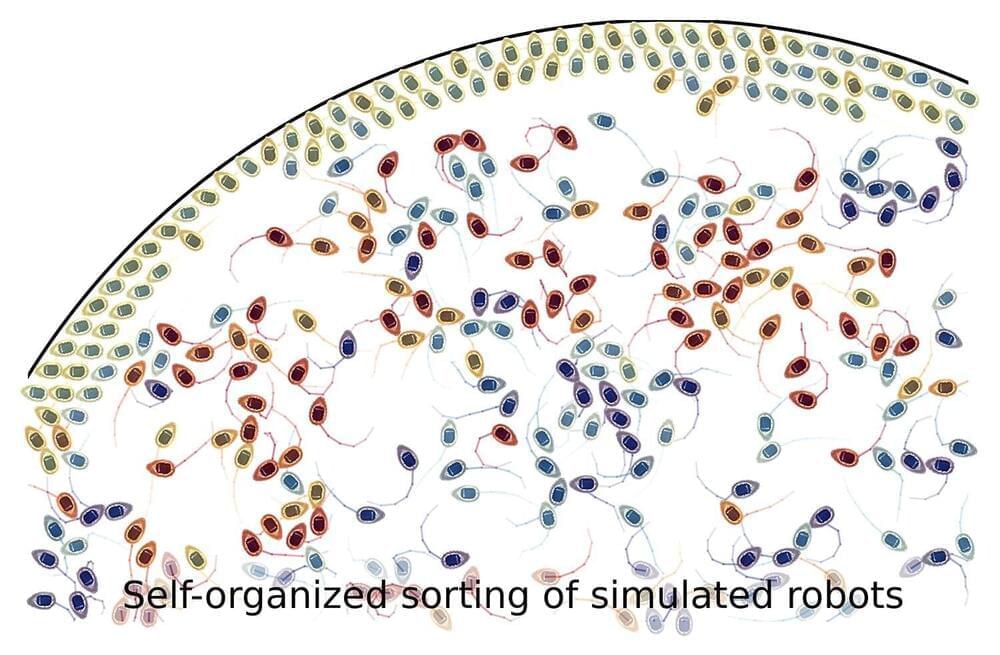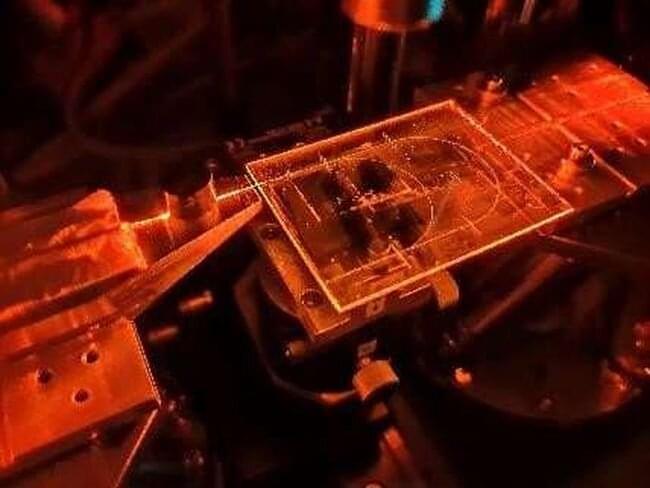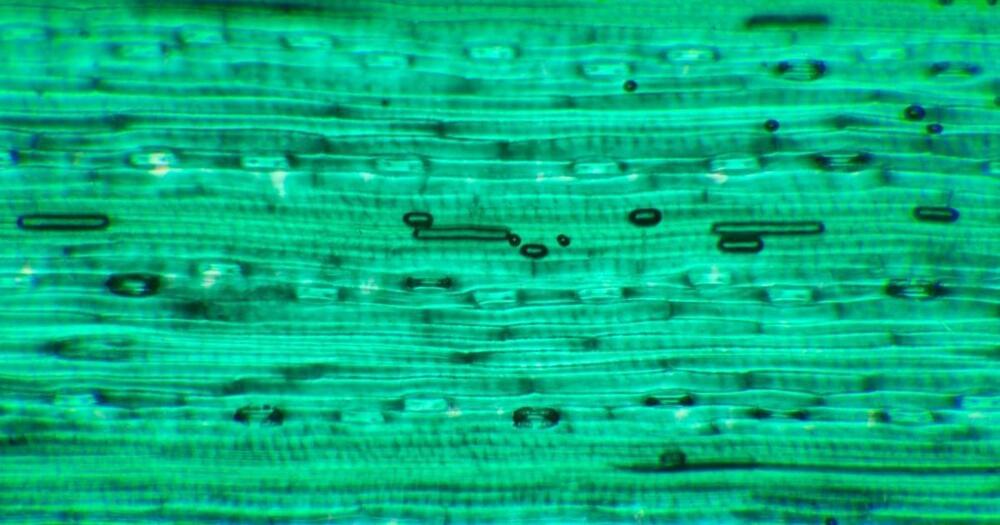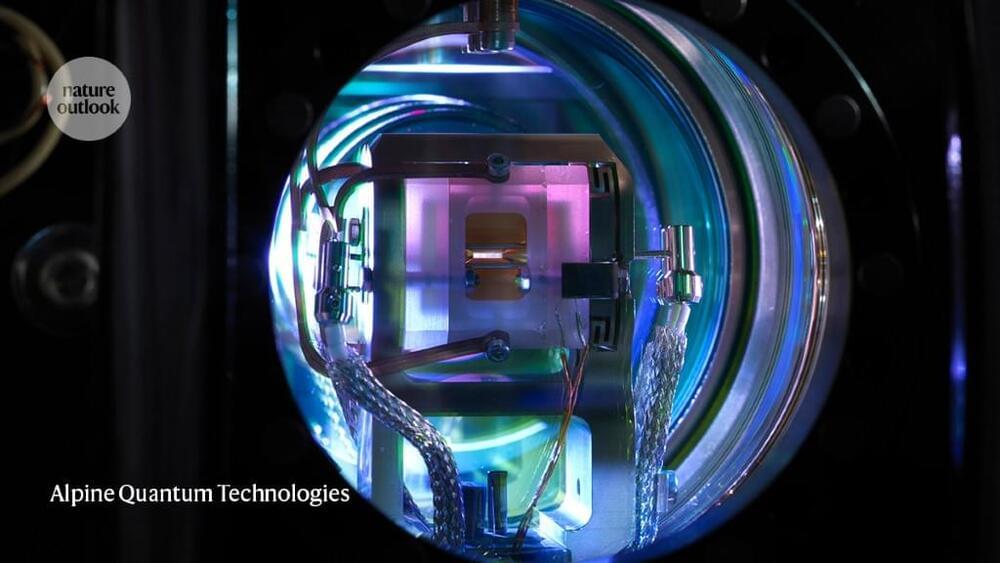Page 2902
May 28, 2023
Forging a dream material with semiconductor quantum dots
Posted by Paul Battista in categories: biological, computing, quantum physics, solar power, sustainability
Researchers from the RIKEN Center for Emergent Matter Science and collaborators have succeeded in creating a “superlattice” of semiconductor quantum dots that can behave like a metal, potentially imparting exciting new properties to this popular class of materials.
Semiconducting colloidal quantum dots have garnered tremendous research interest due to their special optical properties, which arise from the quantum confinement effect. They are used in solar cells, where they can improve the efficiency of energy conversion, biological imaging, where they can be used as fluorescent probes, electronic displays, and even quantum computing, where their ability to trap and manipulate individual electrons can be exploited.
However, getting semiconductor quantum dots to efficiently conduct electricity has been a major challenge, impeding their full use. This is primarily due to their lack of orientational order in assemblies. According to Satria Zulkarnaen Bisri, lead researcher on the project, “making them metallic would enable, for example, quantum dot displays that are brighter yet use less energy than current devices.”
May 28, 2023
Researchers investigate the swarming behavior of microrobots
Posted by Paul Battista in categories: biotech/medical, nanotechnology, robotics/AI
Miniaturization is progressing rapidly in many fields, and the trend toward the creation of ever smaller units is also prevalent in the world of robot technology. In the future, minuscule robots used in medical and pharmaceutical applications might be able to transport medication to targeted sites in the body. Statistical physics can contribute to the foundations for the development of such technologies.
A team of researchers at Johannes Gutenberg University Mainz (JGU) has now taken a new approach to the issue by analyzing a group of robots and how they behave as collectives of motile units based on the model of active Brownian particles. The team’s findings demonstrating that there may be an alternative route to realize programmable active matter have been published in Science Advances.
Researchers are looking for new ways to perform tasks on the micro-and nanoscale that are otherwise difficult to realize, particularly as the miniaturization of devices and components is beginning to reach physical limits. One new option being considered is the use of collectives of robotic units in place of a single robot to complete a task.
May 28, 2023
Chip-based quantum key distribution achieves higher transmission speeds
Posted by Paul Battista in categories: computing, quantum physics, security
Researchers have developed a quantum key distribution (QKD) system based on integrated photonics that can transmit secure keys at unprecedented speeds. The proof-of-principle experiments represent an important step toward real-world application of this highly secure communication method.
QKD is a well-established method of providing secret keys for secure communication between distant parties. By using the quantum properties of light to generate secure random keys for encrypting and decrypting data, its security is based on the laws of physics, rather than computational complexity like today’s communication protocols.
“A key goal for QKD technology is the ability to simply integrate it into a real-world communications network,” said research team member Rebecka Sax from the University of Geneva in Switzerland. “An important and necessary step toward this goal is the use of integrated photonics, which allows optical systems to be manufactured using the same semiconductor technology used to make silicon computer chips.”
May 28, 2023
Plants perform quantum mechanics feats that scientists can only do at ultra-cold temperatures
Posted by Paul Battista in categories: energy, quantum physics
Plants pass energy along paths similar to those of a Bose-Einstein condensate, showing quantum properties at macroscopic scales.
May 28, 2023
Quantum Chemistry Happening Inside Your Eyes Protects Against Vision Loss
Posted by Paul Battista in categories: chemistry, quantum physics
Every color, every flash, every sunray exacts a toll on the light-sensitive tissues at the back of our eyes, producing toxic materials that risk damaging the very cells that allow us to see.
Thankfully, the pigment responsible for darkening our hair, skin, and eyes moonlights as a clean-up crew, mopping up one such dangerous compound before it accumulates into damaging clumps.
An investigation by researchers from the University of Tübingen in Germany and Yale University has revealed the removal process is somewhat unusual as far as biochemistry goes, relying upon a strange quirk of quantum-like behavior.
May 28, 2023
Commercializing quantum computers step by step
Posted by Paul Battista in categories: computing, quantum physics
Alongside developing a quantum computer, one group of scientists is selling its components to other researchers.
May 28, 2023
Radical new “Flying-V” plane aims to transform flight
Posted by Shailesh Prasad in categories: futurism, transportation

The Flying-V airplane doesn’t look like anything you’ll find at today’s airports, but it could be the future of aviation.
May 28, 2023
This New Hypersonic ‘Space Plane’ Can Get You From New York to London in One Hour
Posted by Shailesh Prasad in category: space travel
On Tuesday, the CEO of the UK Space Agency Graham Turnock announced the UK would be working more closely with Australia in a “world-first Space Bridge” agreement which will focus on delivering a plane—or rocket, really—to shuttle passengers from continent-to-continent in just four hours. While flights from London to the Big Apple will reportedly take a skerrick over 60 minutes.
It’s all courtesy of a new hypersonic engine SABRE (Synergetic Air-Breathing Rocket Engine)—which the scientists at Reaction Engines are currently developing. Fueled by a combination of hydrogen and oxygen, SABRE is capable of powering a plane to Mach 5.4 (4,000 mph) for speedy commercial travel—that’s around five times the speed of sound—or Mach 25 (19,000 mph) when soaring in space. It’s supposedly greener and cheaper than current air travel, too.
May 28, 2023
Blood Test #3 in 2023: Supplements, Diet
Posted by Mike Lustgarten in categories: biotech/medical, genetics
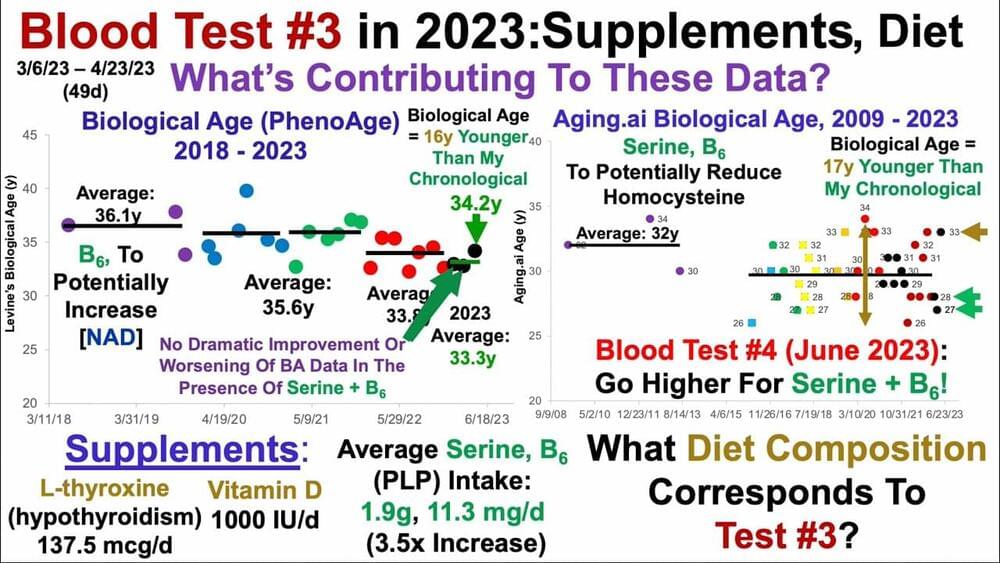
Join us on Patreon! https://www.patreon.com/MichaelLustgartenPhD
Discount Links:
At-Home Metabolomics: https://www.iollo.com/?ref=michael-lustgarten.
Continue reading “Blood Test #3 in 2023: Supplements, Diet” »

